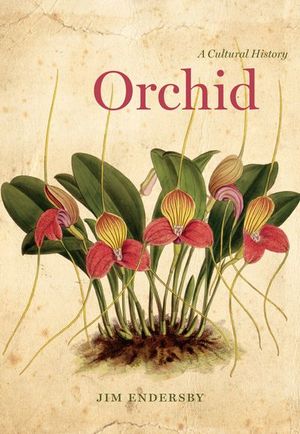Orchid
Published by The University of Chicago Press
The prize-winning history of the orchid: “an engaging and enlightening account of one of the Earth's most mythologized botanical wonders” (Richard Conniff, author of House of Lost Worlds).
At once delicate, exotic, and elegant, orchids are beloved for their singular, instantly recognizable beauty. Found in nearly every climate, the many species of orchid have had varying forms of significance in countless cultures over time. Following the orchid’s journey from Ancient Greek medicine to twentieth century detective novels, science historian Jim Endersby explores the flower’s four recurring themes: science, empire, sex, and death.
Orchids were a symbol of the exotic riches sought by 19th century Europeans in their plans for colonization. They became subjects of scientific scrutiny for Charles Darwin, who investigated their methods of cross-pollination. As Endersby shows, orchids—perhaps because of their extraordinarily diverse colors, shapes, and sizes—have also bloomed repeatedly in films, novels, plays, and poems, from Shakespeare to science fiction.
Featuring many gorgeous illustrations from the collection of the Royal Botanic Gardens, Kew, Orchid: A Cultural History was awarded the Watson Davis and Helen Miles Davis Prize by the History of Science Society. It is an enchanting tale not only for gardeners and plant collectors, but anyone curious about the flower’s obsessive hold on the imagination in history, cinema, literature, and more.
At once delicate, exotic, and elegant, orchids are beloved for their singular, instantly recognizable beauty. Found in nearly every climate, the many species of orchid have had varying forms of significance in countless cultures over time. Following the orchid’s journey from Ancient Greek medicine to twentieth century detective novels, science historian Jim Endersby explores the flower’s four recurring themes: science, empire, sex, and death.
Orchids were a symbol of the exotic riches sought by 19th century Europeans in their plans for colonization. They became subjects of scientific scrutiny for Charles Darwin, who investigated their methods of cross-pollination. As Endersby shows, orchids—perhaps because of their extraordinarily diverse colors, shapes, and sizes—have also bloomed repeatedly in films, novels, plays, and poems, from Shakespeare to science fiction.
Featuring many gorgeous illustrations from the collection of the Royal Botanic Gardens, Kew, Orchid: A Cultural History was awarded the Watson Davis and Helen Miles Davis Prize by the History of Science Society. It is an enchanting tale not only for gardeners and plant collectors, but anyone curious about the flower’s obsessive hold on the imagination in history, cinema, literature, and more.
BUY NOW FROM
COMMUNITY REVIEWS

